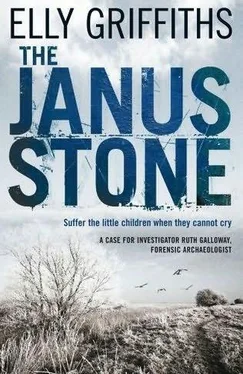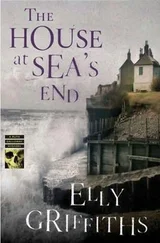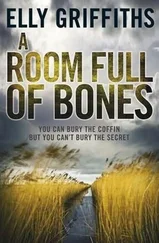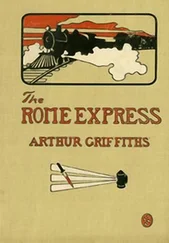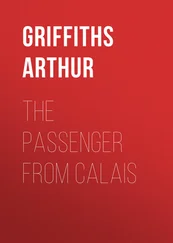‘Hi!’
Max jumps. ‘Ruth. I didn’t see you there.’
‘Who were the visitors?’
He grimaces. ‘The Conservative Association.’ Ruth starts to regret waving. ‘We’ve had quite a few groups now. It was the Scouts earlier.’
‘Jesus. Two paramilitary organisations in one day.’
Max grins. It’s the oldies who scare me most. Did you see that woman walking with me? Looked just like the Emperor Vespasian.’
Ruth laughs. ‘I just came to have a look round but if you’ve had enough for today…’
‘No, no.’ Ruth is flattered by Max’s eager denial. ‘I’d love to show you round. We found something interesting today actually.’
They climb the hill, Ruth trying to disguise how out of breath she is. Jesus, at this rate she’ll be immobile at nine months. The trouble was, she wasn’t terribly fit before.
At the top of the hill, Max bounds off towards the furthest trench. Ruth follows more slowly. She can see that, even before his students arrive, Max has been busy. There are now three trenches radiating outwards like spokes on a wheel. The furthest trench is the deepest, and as she gets closer she can see the layers, topsoil then the telltale layer of chalk which indicates that once, thousands of years ago, this whole area was under water. Cut into the chalk line she sees a wall, the mix of flint and mortar with a thin line of bricks distinctly Roman. And, below the bricks, a silver-grey orb, faintly translucent in the evening light.
‘A skull?’
‘Yes. Can’t see any more just yet.’
‘Do you think it could be a foundation sacrifice?’
‘Yes I do.’ Max gestures towards the bricks. ‘I think this may have been the corner of a room, which could be significant. Remember the bodies at Springfield? They were buried in all four corners of the temple.’
‘Is this a temple then?’ Ruth looks round at the trench, with its neat earth walls open to the sky; her archaeologist’s eye seeing instead a stone temple with statues, altar and incense burning.
‘Again, it’s possible. We’ve found some pottery. They could be amphorae. But it could also be a private house.’
Ruth knows that all Roman houses would have had shrines to the domestic gods. The head of the house – the paterfamilias – would have been, to all intents and purposes, the high priest of his own household religion. And at the hearth, the symbolic centre of the home, there would have been a fire sacred to the goddess of fire. What was she called?
‘Vesta,’ supplies Max. ‘Just think of the matches. Her Greek name was Hestia. The women of the house would be responsible for making sure the fire didn’t go out and for making offerings to her.’
‘Haven’t there been instances of bodies being found buried inside Roman houses?’ asks Ruth.
‘In early Roman times it was quite usual for a dead family member to be buried inside the house,’ says Max. ‘We often find the letters DM by these tombs. Dii Manes – the spirits of the dead or The Good.’
Ruth shivers, thinking of the little body buried under the door in Woolmarket Street. The Good . Children are good, by anybody’s reckoning, and innocent. But this does not seem to stop people from doing dreadful things to them.
‘Children’s bodies have been found too, haven’t they?’ she says.
‘Yes. In Cambridge in the seventies twelve newborn babies were found buried under a Roman building. We don’t know if they had died naturally, maybe even stillborn, or if they were sacrifices.’
‘The field team have found a body on a building site in Norwich,’ says Ruth slowly. ‘I think it’s headless.’
Max looks at her with interest. ‘Modern?’
‘I don’t know. We haven’t done carbon dating yet. But the grave cut looks fairly recent.’
‘The bones could still be old though.’
‘Yes,’ agrees Ruth. ‘But the skeleton looks intact. I think it was buried when the doorway was built.’
‘When was that?’
‘Well, the house is Victorian but the entrance and portico could be later, I suppose. It used to be a children’s home.’
Thinking of the children’s home reminds her of something else. She gets her notebook out of her pocket. ‘Do you know what this means?’ she asks. ‘It was an inscription found at the site.’
Max looks down at the words and, for a second, his face seems to darken. Ruth wonders if she has offended him. ‘I couldn’t understand it myself,’ she says, rather nervously. ‘I didn’t go to the right kind of school.’
‘ Omnia Mutantur, Nihil Interit ,’ says Max slowly, ‘It means: everything changes, nothing perishes.’
‘Oh… thanks. Did you learn Latin at school then?’ He has a rather public-school look to him, Ruth thinks. Maybe it’s the curly hair. Or the Range Rover.
Max smiles, his laid-back charming self again. ‘No, but I’ve learnt a good deal of Latin over the years. The Romans are my speciality after all.’
‘Everything changes, nothing perishes,’ repeats Ruth. ‘What sort of a motto is that?’
‘The perfect motto for an archaeologist,’ says Max, clambering out of the trench.
*
Nelson drives back to the police station, trying to ignore Clough who is noisily eating a packet of crisps. When out on a case Clough eats almost constantly: crisps, sweets, innumerable takeaways. It’s a wonder he’s not the size of a house, thinks Nelson sourly. In fact, Clough has less of a gut than he has. There’s no justice.
‘Do you think it’s a murder?’ asks Clough, crunching away. The smell of cheese and onion is making Nelson feel sick. Perhaps I’ve got morning sickness, he thinks. He suffered psychosomatic pains with both Michelle’s pregnancies. But Ruth may not be pregnant and, even if she is, the child might not be his.
‘I’ve got no idea,’ he says shortly. ‘And you had no business speculating.’
‘Come on, boss, you know what those nuns and priests are like. I read a book once, set in Ireland, and the things they did to those poor kids.’
Nelson is silent, thinking of his own schooling in Catholic establishments. The brothers had been strict, he remembers, strict but fair. And he’d been no angel at school, probably deserved everything he got. He remembers the parish priest, Father Damian, a slight, insignificant man, worshipped by Nelson’s mother who was forever ascribing dogmatic opinions to him. ‘Father Damian thinks, Father Damian says…’ He couldn’t remember Father Damian himself ever offering an opinion about anything, except about the horses. He’d been a betting man he remembers.
‘Lots of those books are bollocks,’ he says, taking a corner too fast. ‘Authors make everything up just to make money.’
‘Nuns are creepy, though,’ says Clough, unabashed. ‘Those black robes, those headdresses. Spooky.’
‘My aunt’s a nun,’ says Nelson, to shut him up. In fact, Sister Margaret Mary of the Precious Blood is his great-aunt, his grandmother’s sister. He hasn’t seen her for years.
‘You’re joking! You a Catholic then?’
‘Yes,’ says Nelson, though he hasn’t been to church since Rebecca’s first holy communion, eight years ago.
‘Bloody hell, boss. I wouldn’t have had you down as religious.’
‘I’m not,’ says Nelson. ‘You don’t have to be religious to be a Catholic.’
Ruth and Max are in the bar of the Phoenix. Ruth is ragingly hungry once again. She has torn open a packet of crisps (plain) and is having to force herself even to put up a pretence of sharing them with Max.
‘No thanks.’ Max waves the crisps away and takes a gulp of beer. In celebration, Ruth puts four into her mouth.
Читать дальше
